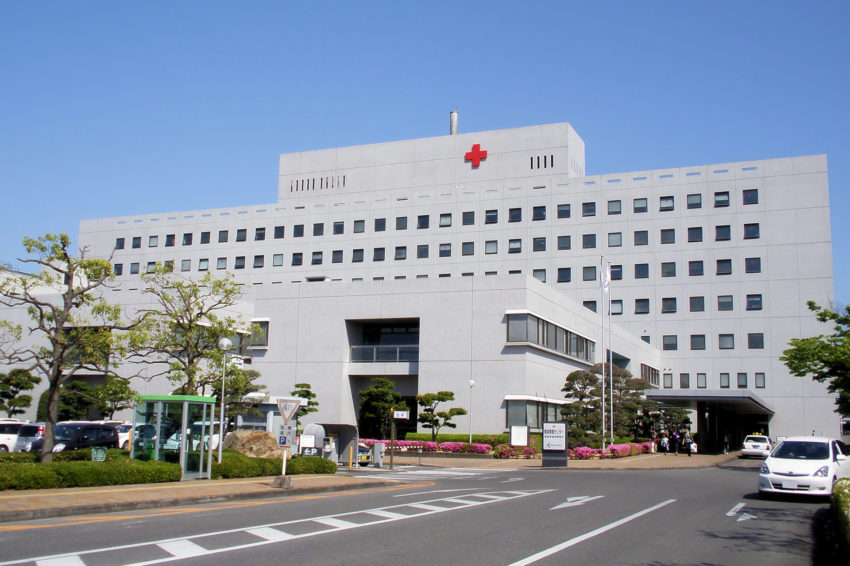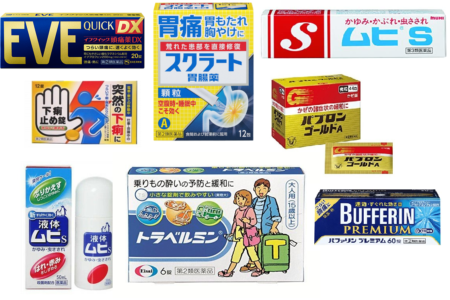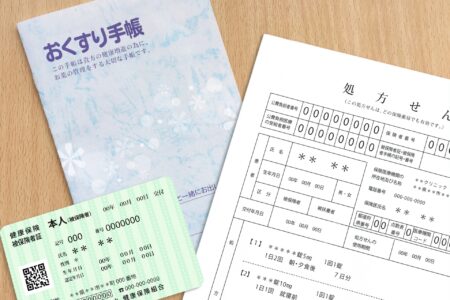Healthcare in Japan: A 3-Step Guide

Top photo: Okayama Red Cross Hospital, Kita-ku, Okayama by Phronimoi, licensed under the Creative Commons Attribution-Share Alike 3.0 Unported, 2.5 Generic, 2.0 Generic and 1.0 Generic license. No changes or alterations were made. Wikimedia Commons Link
Accessing appropriate healthcare in Japan can be a challenge for foreigners new to the country. This article will guide you through the steps you need to take to make that process as smooth as possible.
Step one includes obtaining health insurance, without which you will be paying full medical fees. Step two guides you through the process of accessing an initial consultation at a clinic. Step three deals with treatment at hospitals and registering at a pharmacy.
Think of this article as a companion piece to our previous guide and if you’re about to enter into the healthcare system yourself for the first time, we hope it helps.
Step one: Health insurance
Anyone living in Japan must be covered by an insurance scheme. If you are a full time employee it is likely that you will be enrolled on a company insurance scheme (健康保険 kenko-hoken), in which case you will be issued a health insurance card (健康保険証 kenko-hoken-sho).
However, if you are unemployed, part-time, or do not receive company healthcare insurance, you must obtain National Health Insurance (国民健康保険 kokumin-kenko-hoken) from your local city hall (市役所 shi-yaku-sho). For the application you will need your passport, residence card, a your own personal seal/stamp (判子 hanko).
If you do not have a “my number” card, you can apply for this at the city hall. Once issued, you should keep your insurance card on you at all times.
Step Two: Registering at a clinic
Unlike many other countries, there is no system of general practitioners in Japan, therefore, unless it is an emergency, you must first register with an appropriate clinic if you become ill. This will involve an initial consultation (初診 sho-shin). Here are the main type of clinics:
眼科 (ganka) ophthalmologist
歯科(shika) dentist
耳鼻咽喉科(ji-bi-in-ko-ka) ear, nose and throat
内科 (naika) internal medicine
外科 (geka) surgery
皮膚科 (hifuka) dermatologist
Firstly, go to the reception and tell them it is your first time at the clinic by using the phrase hajimete desu, and present your health insurance card. The receptionist will ask you to fill in a medical questionnaire (問診票 mon-shin-hyo ) which includes general information about yourself. After you complete this and return it to the receptionist, you will then be issued a medical card (診察券 shin-satsu-ken).
The doctor will call you into the examination room for the initial consultation. Some clinics have English speaking doctors, however this is not always the case. If you can’t speak Japanese it’s probably best to take someone with you who can translate. However, if this isn’t feasible, here are some survival phrases:
歯が痛い ha ga itai my tooth hurts
お腹が痛い o-naka ga itai my stomach hurts
足が痛い ashi ga itai my leg hurts
頭痛がします zutsu ga shimasu I have a headache
めまいがします memai ga shimasu I am dizzy
吐き気がします hakike ga suru I feel sick
下痢をします geri o shimasu I have diarrhea
便秘をします benpi o shimasu I have constipation
咳が出る seki ga deru I have a cough
鼻血が出る hanaji ga deru I have a nosebleed
熱がある netsu ga aru I have a fever
After you have received a consultation, the doctor will advise you and the best course of action.
This is likely to be one of two outcomes. Either referral to a hospital for further treatment, and/or a prescription for medications.
Step three: Hospital or pharmacy
If the illness requires medical attention in hospital then you will be given a referral letter (紹介状 sho-kai-jo). Hospitals in Japan operate by appointment, hence you should make an appointment before you attend even if you have a referral letter. When you attend you must present your referral letter to the receptionist along with your health insurance card. Again, once you have registered with the hospital you will receive a medical card.
If you are sent to a pharmacy you must register with that pharmacy and present your prescription along with your health insurance card. Once you have registered with that pharmacy you will receive a pharmacy medical card and your prescriptions. In either case, because your insurance covers only 70% of any treatment or consultation fees, you should take cash to over any additional expenses.
Accessing healthcare in Japan can be a daunting challenge for foreigners who are new to the country. However, this angst can be avoided with a little preparation and planning. With the correct documentation, and a little vocabulary under your belt, you should find accessing healthcare relatively painless.
Photo Credits:
Top photo: Okayama Red Cross Hospital, Kita-ku, Okayama by Phronimoi, licensed under the Creative Commons Attribution-Share Alike 3.0 Unported, 2.5 Generic, 2.0 Generic and 1.0 Generic license. No changes or alterations were made. Wikimedia Commons Link
All other content (text) created by the original author and © 2021 MUSUBI by Borderlink
RELATED
-

Must-Haves: Medicines at the Drugstore
Top Image Courtesy of Kristine Mayor When it comes to first aid in the home, it’s always best to be prepared w… -

Quick Tips: Hydration Nation
Top photo: Daniel Tseng on Unsplash To those from abroad, one of the most curiously fascinating aspects of Jap… -

A Layman’s Guide to Japan’s Health Insurance System
Top Image: Hadesさん on PhotoAC Health Insurance in Japan can sometimes seem like a real pain in the neck, but i…
PEOPLE

The MUSUBI Staff
Collaborative works put together by our many talented writers and editors!


